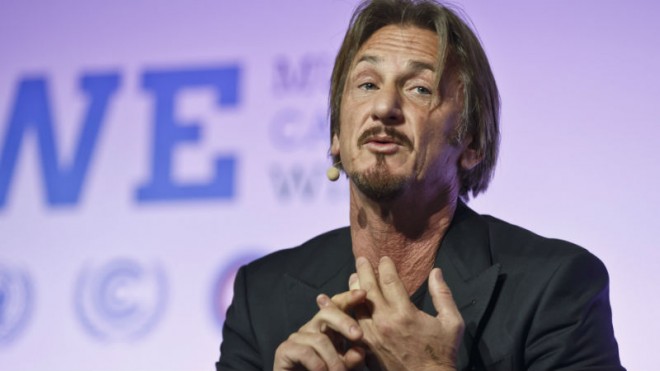Battle lines redrawn in climate pact blueprint
LE BOURGET, France—Diplomats crafting the blueprint for a worldwide climate rescue deal tendered their 48-page offering on Saturday, concluding a bitter four-year haggle that seemed often to teeter on the brink of collapse.
While the draft climate agreement has been welcomed as a crucial step in the right direction, it remains littered with clashing proposals from countries at odds on how to divvy up responsibility for curbing Earth-warming greenhouse gases, and forking out the cash.
Negotiators finalized the draft after an often tense week of talks in Le Bourget on the northern outskirts of Paris.
And while environment ministers need to resolve many extremely contentious points during a scheduled five days of talks starting on Monday, delegates said they felt the foundations had been laid for success.
“While we are talking, greenhouse gases are being emitted and at some point it becomes irreversible. So we must succeed,” said French Foreign Minister Laurent Fabius, who was presiding over the talks. “We are talking about life itself.”
After the draft was adopted to loud applause, South African negotiator Nozipho Mxakato-Diseko drew on her nation’s revered democracy icon in a bid to inspire others.
Article continues after this advertisement“In the words of Nelson Mandela, it always seems impossible until it is done,” she said.
Article continues after this advertisementMore than 50 well-known figures, from US actor Sean Penn to Chinese Internet tycoon Jack Ma, also gathered at the conference on Saturday to help build momentum.
“Perhaps this is the most exciting time in human history,” Penn told a special event at the conference. “Those illusions of having too many difficult choices have always created chaos. Now we live in a time where there are no choices.”

American actor Sean Penn founder of J/P Haitian Relief Organization gesturers as he speaks during the”Action Day”at the COP21, United Nations Climate Change Conference, in Le Bourget north of Paris, Saturday, Dec. 5, 2015. President Francois Hollande is encouraging mayors of the world to get involved in fighting climate change and praising those that are already setting an example with low-emission buildings and public transport policies. (AP PhotoMichel Euler)
Environment ministers face a considerable task when they gather on Monday to translate the template into a 195-nation plan to preserve our planet’s hospitable climate and the future of humankind. These are the crunch issues:
In 2009, rich countries pledged to mobilize $100 billion (92 billion euros) a year in climate finance for developing nations from 2020.
The money must ease the shift from cheap and abundant coal to renewable energy sources (“mitigation,” in climate jargon), and shore up defenses (“adaptation”) against climate change impacts such as freak storms, drought and a rise in sea level.
But does private money count? And loans? What about money from richer, fellow developing nations, multilateral agencies and development aid? Who qualifies for funding? How much of the money will go to mitigation, and how much to adaptation?
These are the questions still dividing developing nations and rich ones, many of which resist attempts to write any obligation or liability into the text.
More recently, the world’s poorest nations are demanding additional money to cover climate change-induced losses.
The talks are taking place under the auspices of a 1992 climate treaty that enshrined the principle of “common but differentiated responsibilities and respective capabilities.”
It assumed that rich countries have polluted for longer, and bear a bigger responsibility for dealing with the resulting problem—a distinction developing nations wish to retain.
They also demand some leeway on coal use as millions of people rise out of poverty.
Wealthy countries argue much has changed in 20 years, and nations once tagged “developing” have become big polluters in their own right.
China is now the world’s No. 1 greenhouse gas emitter, and India is No. 4 after the United States and the European Union.
In 2010, UN countries adopted a goal of limiting average global warming to 2 degrees Celsius over pre-Industrial Revolution levels.
But small island states and many poor nations—which will be hit first and hardest by the impact of climate change—are pushing for a lower ceiling of 1.5° C.
The draft agreement lists both temperature targets as options under the caption “Purpose.” It will now be up to ministers to take the political decision which one they retain, or perhaps both.
A pillar of the Paris agreement is a list of voluntary national pledges for reducing emissions from burning coal, oil and gas.
But commitments received so far, even if fully honored, place the world on course for warming far beyond the targeted safe level, scientists say.
Many countries want a mechanism to periodically review, and ramp up, the pledges.
But how often will assessments take place? From when? Will there be an obligation on nations to automatically improve on their earlier pledges, and how frequently?
Falling under the UN climate forum, the agreement will be considered “binding” under international law—though there is no penalty for noncompliance, merely a loss of face. AFP